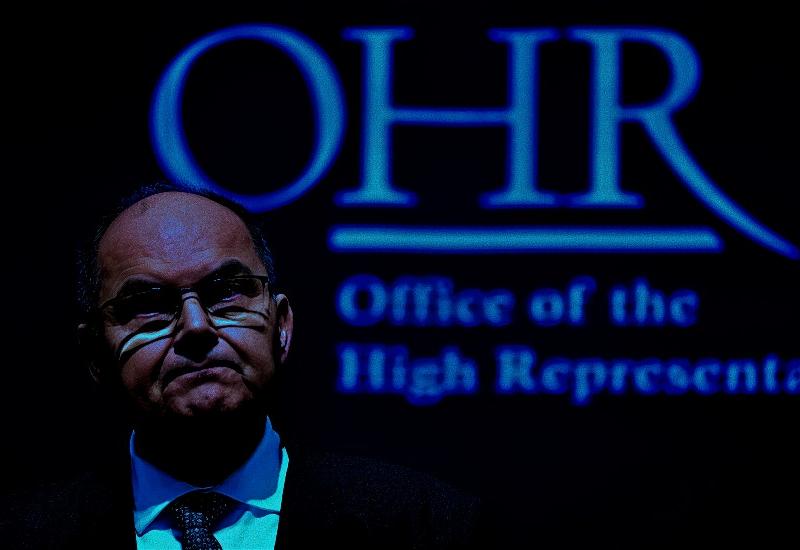 We’re stuck not in just any Bosnian tragicomedy, but in an elite version, where the main roles are played by foreign high representatives, while the streets and local political actors carry out their rituals, all while the international audience watches from the gallery with quiet disapproval.
We’re stuck not in just any Bosnian tragicomedy, but in an elite version, where the main roles are played by foreign high representatives, while the streets and local political actors carry out their rituals, all while the international audience watches from the gallery with quiet disapproval.
Christian Schmidt, the High Representative in Bosnia and Herzegovina, found himself in a storm of criticism following his statement on Face TV, where he mentioned both Alija Izetbegović and Ratko Mladić. With the best intentions, Schmidt seems to have opened Pandora’s box of local interpretations, and now the Office of the High Representative (OHR) is left to clean up the mess.
His comment, “We cannot have such a difference… If we see Mladić and Alija Izetbegović, unacceptable way…” caused a wave of reactions. Of course, political actors immediately seized the opportunity to interpret this as an equation of convicted war criminal Ratko Mladić with Alija Izetbegović, the first president of the Presidency of BiH.
The OHR was quick to respond, with precision. “Ratko Mladić is a convicted war criminal responsible for the genocide in Srebrenica. Alija Izetbegović is a key figure for securing peace and the Dayton Agreement, which saved many lives.” According to the OHR, these two names were never, nor will they ever be, placed on the same historical scale.
However, malicious claims of equating Izetbegović and Mladić, as stated by the OHR, are “completely unfounded.” But is it already too late? The public is already inflamed, and in a country where history is written according to daily politics, every statement becomes a weapon.
Schmidt’s mistake may lie in his attempt to balance historical facts with the current political reality. He did so sloppily, suggesting the importance of removing wartime figures from the minds of young people, instead of finally using his power to make a decisive ruling in this field. No more deification of either Ratko or Alija. A new era begins. I decided. And that’s that.
But he didn’t. In a place where history textbooks are written as political pamphlets, and children learn different versions of the same history depending on which party their father belongs to, the High Representative clearly wanted to say something about bias. Yet, he forgot an old Bosnian proverb—this one from the title.
The criticism Schmidt raised isn’t disputed—the real issue, according to the OHR, is the content of the history textbook for 9th-grade students in Republika Srpska. But the real question isn’t what’s written in the books, but how those books are used to shape the views of future generations. OHR and Schmidt seem to be trying to spark a discussion about this, but in a country where history is used as political currency, such discussions are as dangerous as walking through a minefield.
This is why the OHR firmly states that Schmidt was not equating Izetbegović and Mladić, but pointing to the need to remove bias from the education system to avoid further ethnic divisions among young people. Yet, as is often the case in Bosnia, where history is weaponized, it’s easy to lose sight of the bigger picture.
And the bigger picture says that today, in a general referendum, more Bosnians would declare Alija a bigger criminal than Ratko. And in that referendum, a significant number of Muslims would vote for it. Not just those from Kladuša.
What this means is that the narrative of defending Alija as the peacemaker while Ratko was worse is just a spin to cool tensions in Sarajevo. The people of Bosnia and Herzegovina and its ethnic groups know and feel very well who of the two cost them more. Without diminishing the evil done by Mladić, that same Mladić can’t hold a candle to the harm Alija and his legacy caused here.
Don’t believe us? Hold a referendum, cowards.